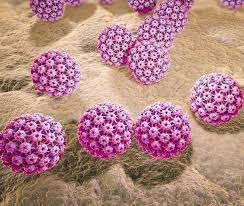Genital warts are lesions that appear as growths of the skin and mucous membranes, predominantly located on the vulva and around the anus. They are caused by certain types of HPV (human papillomavirus), the same pathogen that is responsible for the formation of warts in other anatomical areas. The infection is mainly, but not exclusively, transmitted sexually.
What are the reasons?
Basically, genital warts are caused by HPV genotypes 6 and 11, which have a low oncogenic risk. This means that genital warts rarely show the potential for neoplastic evolution. The incubation period is from one to six months. In most cases, the infection resolves within a short time, in others, HPV remains in the cells for a long time.
It should be noted that some people do not contract genital papillomavirus infection, probably due to a highly efficient immune system. The likelihood of transmission of genital warts from an infected partner to an uninfected partner is not known for certain, nor is the duration of contagiousness completely known .
What are the risk factors?
Factors that can contribute to genital warts include:
• immunodeficiency states;
• immunosuppression and the concomitant presence of other pathologies that can weaken the immune system;
• the use of cortisol, especially locally ;
• pregnancy.
It should be borne in mind that genital warts spread more easily in conditions of high humidity and are more likely to occur in cases of increased vaginal discharge, such as vaginal candidiasis.
The number of sexual partners also matters: promiscuity increases the risk of infection. Many subjects can be contagious without even knowing it, being carriers of the virus or suffering from an asymptomatic form of the disease.
How to recognize?
Genital warts look like soft and fleshy growths with an uneven, pitted, and fissured surface. Their diameter is variable and can range from a few millimeters to several centimeters. If left untreated, genital warts can turn into a rough rash and form cauliflower-like masses.
The symptoms associated with genital warts are not particularly severe, although they can be aesthetically distressing. In some cases, formations spontaneously regress. However, it also happens that genital warts are associated with: local irritation, swelling, redness and bleeding, intimate itching.
In both sexes, the typical sites of lesions are the mucous membranes and the surface of the skin in and around the genital area, anus . Genital warts can appear in the mouth after oral sex with an infected person.
The main complication of genital warts is recurrence. In fact, condylomatous lesions tend to reappear even after treatment. During pregnancy, they can increase in size, which leads to urination disorders.
What to do?
Given the relationship between HPV infection and cervical cancer, a Pap test is recommended for patients with genital warts .
This study allows you to identify early signs of degeneration in the tumor sense and allows you to fight any tumor in its initial stage. With a positive result, a diagnostic procedure known as colposcopy is indicated to confirm or refute the possible presence of a tumor process affecting the cervix.
Genital warts can be treated in a variety of ways. Genital warts are successfully eliminated with a radioknife at the Bogolyuby Medical Center Surgitron DF120.
















